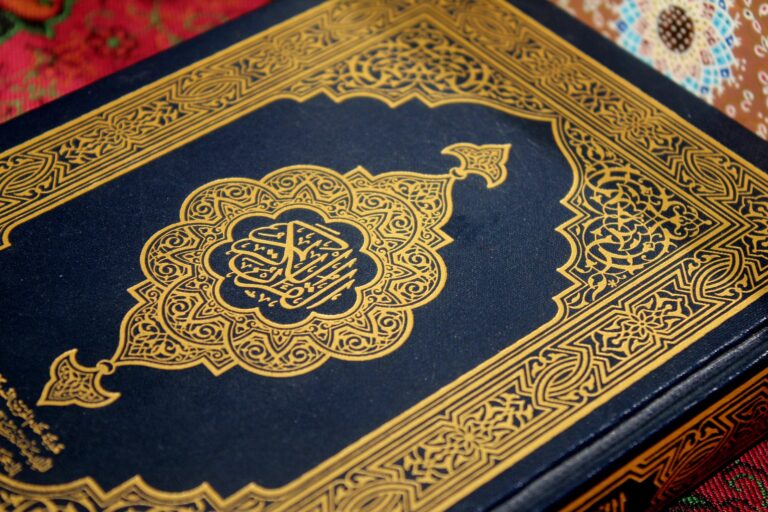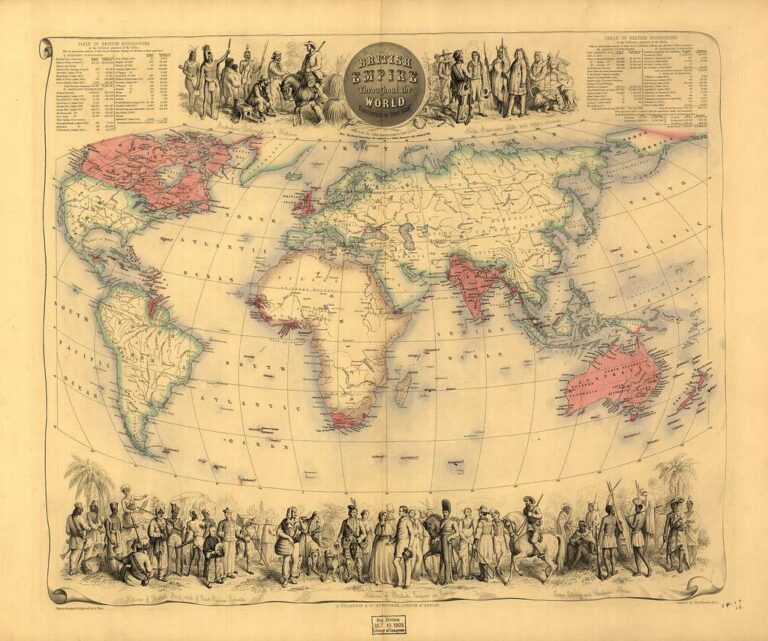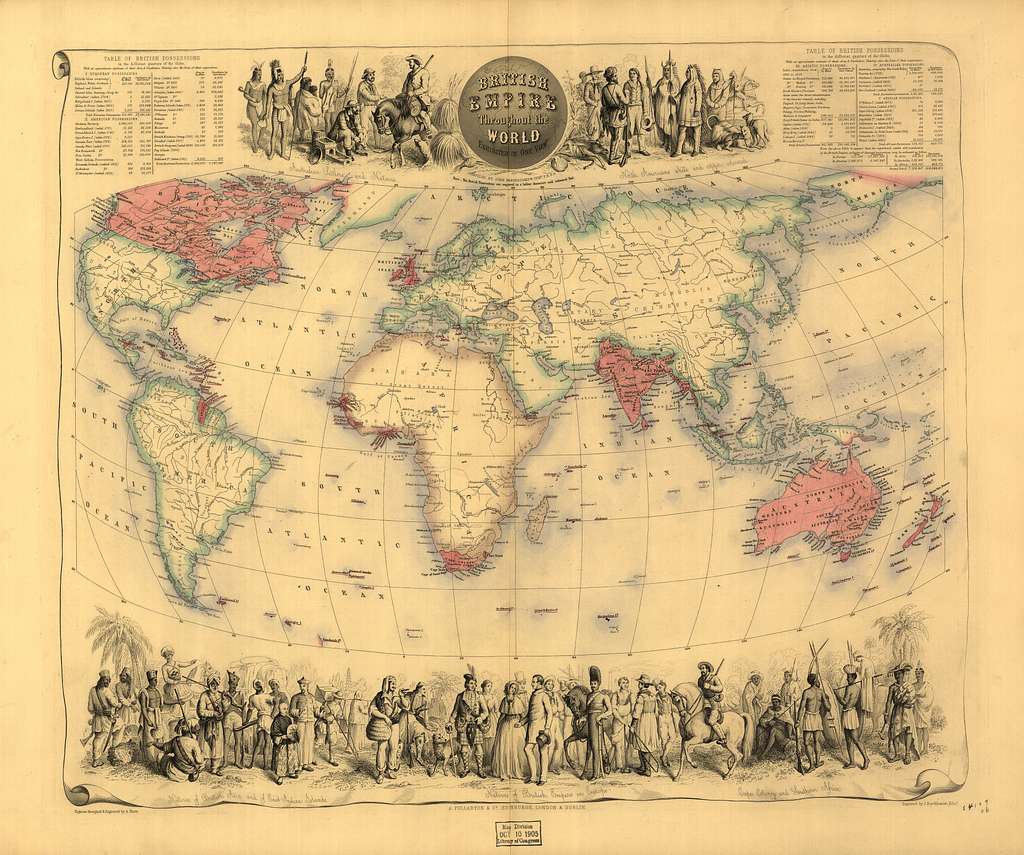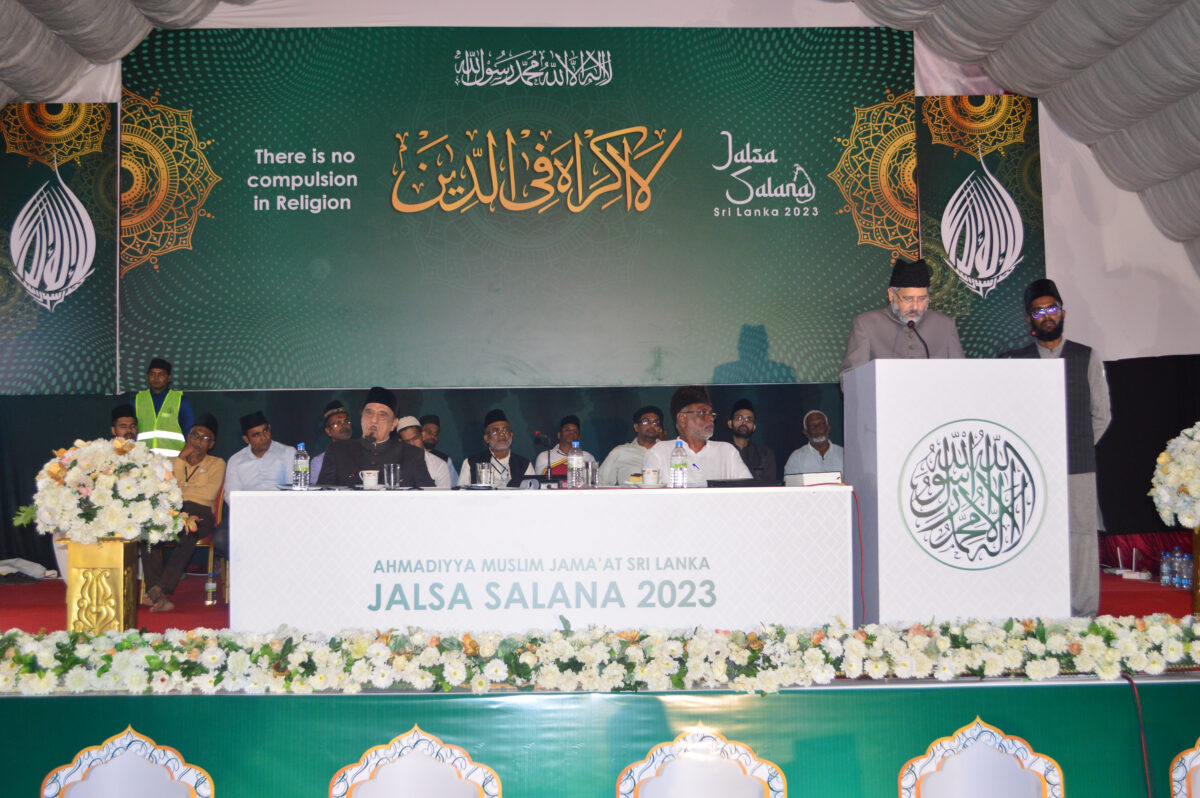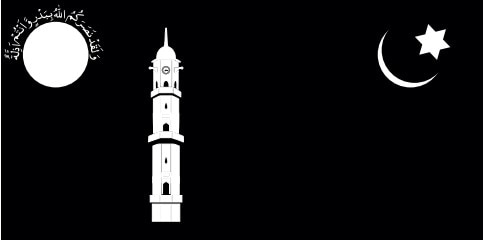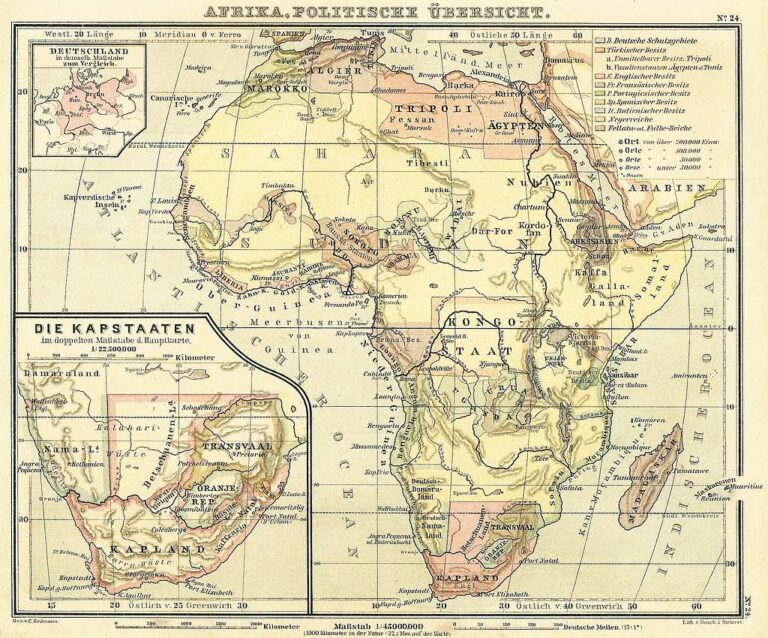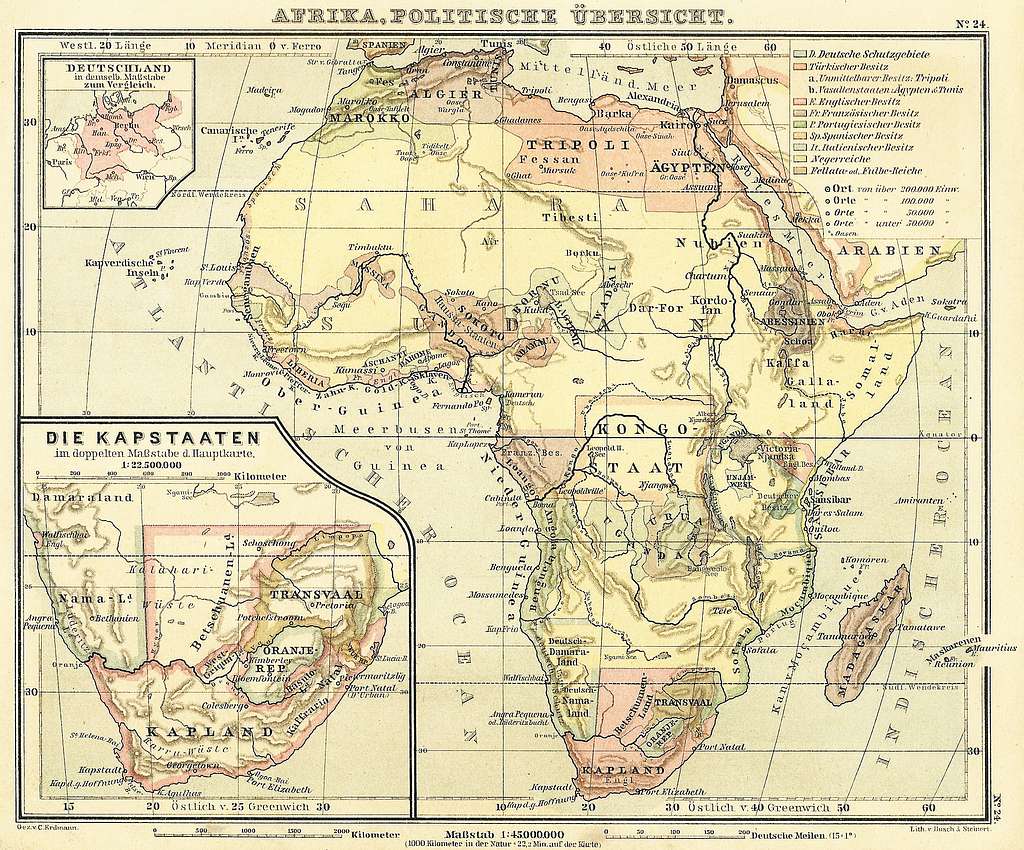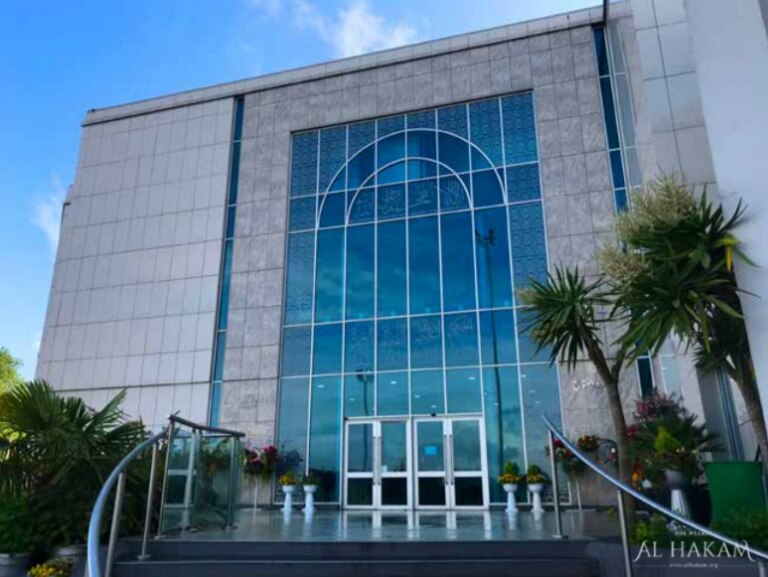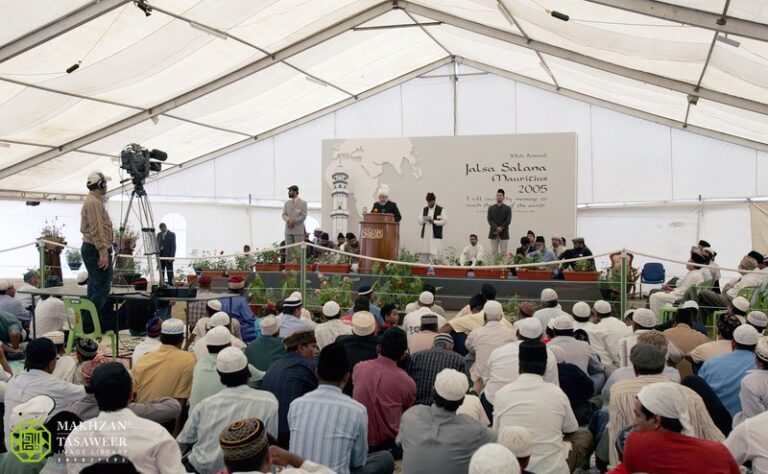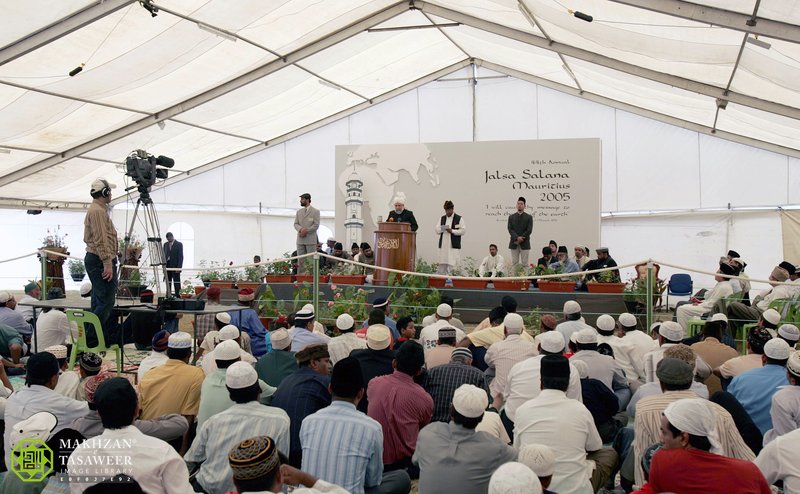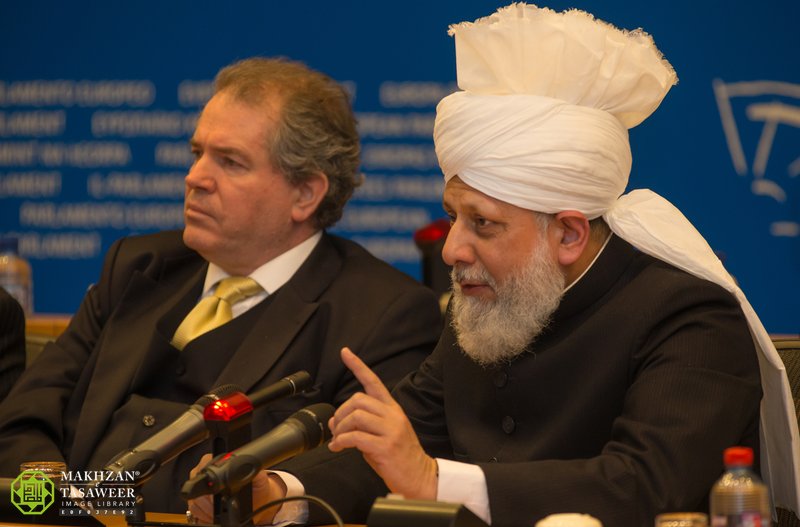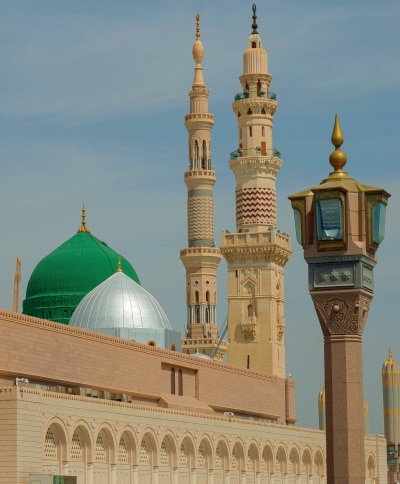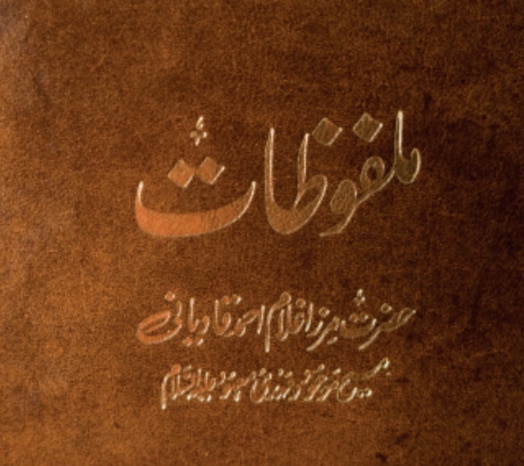M Adam Ahmad, Al Hakam
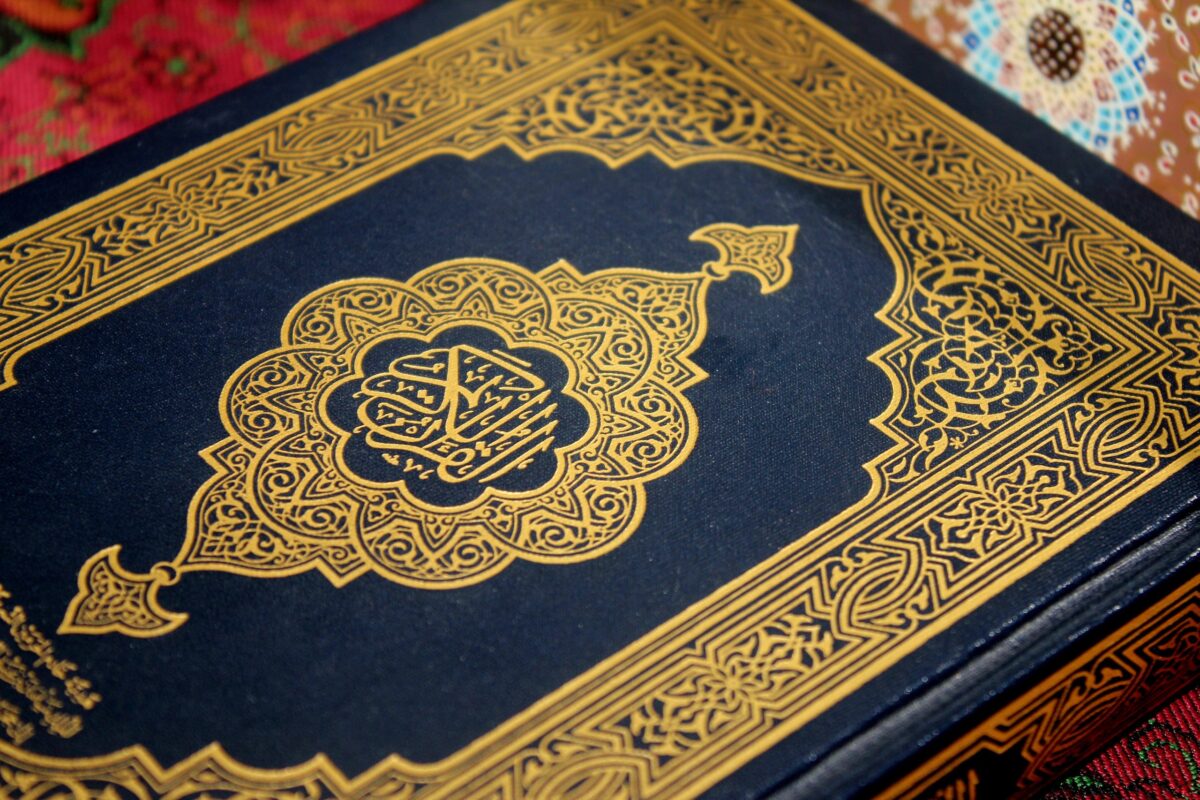
God Almighty revealed the Holy Quran to Prophet Muhammadsa for the guidance of humanity. This Holy Book of Allah the Almighty foretells many future events to strengthen the faith of the believers and enlighten those who seek understanding and truth. One such Divine revelation concerns the fate of Palestine. Allah the Exalted states:
وَلَقَدۡ کَتَبۡنَا فِي الزَّبُوۡرِ مِنۡۢ بَعۡدِ الذِّکۡرِ اَنَّ الۡاَرۡضَ يَرِثُہَا عِبَادِيَ الصّٰلِحُوۡنَ۔ اِنَّ فِيۡ ہٰذَا لَبَلٰغًا لِّقَوۡمٍ عٰبِدِيۡنَ۔ وَمَاۤ اَرۡسَلۡنٰکَ اِلَّا رَحۡمَةً لِّلۡعٰلَمِيۡنَ۔
“We have recorded in the Book of David, after the exhortation, that My righteous servants shall inherit the Land. Herein, surely, is a message for those who are devoted to worship. We have sent thee only as a mercy for the universe.” (Surah al-Anbiya’, Ch.21: V.106-108)
In Tafsir-e-Kabir, Hazrat Mirza Bashir-ud-Din Mahmud Ahmad, Khalifatul Masih IIra have discussed the above verses at length.
Hazrat Musleh-e-Maudra explains that Allah the Almighty says in these verses that after some exhortations in the book of Psalms, He declared that the inheritors of the Holy Land will be His righteous servants. Herein, there is a message for people who truly worship Him. And God has sent the Holy Prophetsa as a mercy for all.
The aforementioned prophecy of the Bible states, “The righteous will inherit the land and dwell in it forever.” (Psalms, 37:29) However, one should not be misguided by the [temporary] dominance of the Israelites on the Holy Land, i.e., Palestine, because this prophecy also signifies that if the opportunity presents itself, the righteous servants of God will again prevail over this country.
Hence, God conveyed this message to the Muslims that a time will come when the Israelites will occupy the Holy Land. The word ‘abidin [people who worship Allah] is used here to refer to the prophecy of David[as] in the book of Psalms. God forewarned the Muslims to be watchful that if at any time they show weakness in becoming His servants, Allah the Almighty will bring the Israelites back to Palestine. However, if the Muslims become true worshippers of God again, they will prevail anew.
Moreover, they should also realise that the mercy of the Holy Prophetsa is timeless and the era of Prophet Muhammadsa does not end with the triumph of the Israelites over Palestine. In fact, the mercy of Allah’s Messengersa transcends all ages, i.e., the periods before and after the occupation of the Israelites.
Thus, one should not be dismayed, as when divine mercy showers again, the Muslims will triumph once more in Palestine. (Tafsir-e-Kabir [2023], Vol. 8, pp. 105-106)
Explaining this prophecy of the Holy Quran, the Promised Messiah and Mahdi, Hazrat Mirza Ghulam Ahmadas says:
“It is clear from this verse that al-Ard, which refers to the land of [Greater] Syria, will always be inherited by the righteous people, and as of now, it is in the possession of Muslims.
“Allah the Almighty has not used the word “يَمْلِکھَا” [in the aforementioned verse] but in fact said “يَرِثُھَا”. This manifestly shows that the true heirs [of Palestine] will always be Muslims, and if it goes into the hands of some else at some point, such a possession would be similar to a scenario in which the mortgagor gives temporary control of their property to the mortgagee. This is the glory of Divine revelation, [and it shall surely come to pass].” (Al Hakam, 10 November 1902, p. 7)
Based on the divinely inspired commentaries of Hazrat Musleh-e-Maudra, The Five Volume Commentary of the Holy Quran also presents an overview of the prophecy under discussion. In the explanation of the verse 106 of Surah al-Anbiya‘, it states:
“By الارض (the land) is meant Palestine. It is worthy of note that Christian commentators themselves have interpreted the phrase ‘inherit the land’ or ‘inherit the earth’ in the Psalms as meaning, ‘inherit Canaan, the pledge of God’s covenant.’ (Commentary on the Old Testament, published by The Society for Promoting Christian Knowledge, London, notes on Ps. 37:3, 9) The reference in the words, ‘in the Book of David’ is to Psalms 37:9, 11, 18, 22 & 29, where it is stated:
“‘For evildoers shall be cut off; but those that wait upon the Lord, they shall inherit the earth. But the meek shall inherit the earth; and shall delight themselves in the abundance of peace. The Lord knoweth the days of the upright; and their inheritance shall be forever. […] For such as be blessed of him shall inherit the earth; and they that be cursed of him shall be cut; The righteous shall inherit the land, and dwell therein forever.’
“The word الذکر may also refer to Torah, the Book of Moses. There is a prophecy in Deuteronomy (28:11 & 34:4) that Palestine was to be given to the Israelites:
“‘For when I shall have brought them into the land which I swore unto their fathers, that floweth with milk and honey; and they shall have eaten and filled themselves, and waxen fat; then will they turn unto other gods, and serve them, and provoke me, and break my covenant […]. And the Lord said unto him, this is the land which I swore unto Abraham, unto Isaac, and unto Jacob, saying, I will give it unto thy seed.’
“The Israelites rose to great power after Moses[as] and in the time of David[as] and Solomon[as] their rule extended far and wide till it embraced in its orbit far-off lands. Then they fell on evil days. They sinned and transgressed and killed God’s Prophets with the result that Divine nemesis overtook them. First Samaria was conquered and ravaged by the Assyrians about 733 BC and the whole country north of Israel was annexed by them. Then under Pharaoh Necho, the Egyptians ravaged Judah in 608 BC and last of all the greatest blow fell on Israel when Nebuchadnezzar, the Babylonian king, laid waste Judah, killed in cold blood the inhabitants of Jerusalem and burned and razed the holy Temple of Solomon to the ground and carried away in captivity the members of the royal family and their Prophets. After wandering in wilderness for about a century the Israelites were restored to Jerusalem and to some of their lost glory through the instrumentality of Cyrus, the Persian king and his successors. To this restoration the following passage of the Bible makes a prophetic reference from the mouth of Moses:
“‘And it shall come to pass, when all these things are come upon thee – thou shalt return unto the Lord thy God, and shalt obey his voice according to all that I command thee this day, thou and thy children, with all thine heart, and with all thy soul; that then the Lord thy God will turn thy captivity, and have compassion upon thee, and will return and gather thee from all the nations, whither the Lord thy God hath scattered thee […]. And the Lord thy God will bring thee into the land which thy fathers possessed, and thou shalt possess it; and He will do thee good, and multiply thee above thy fathers.’ (Deuteronomy, 30:1-5)
“Again, the Israelites relapsed into sin and iniquity. They opposed and persecuted God’s Messengers and the cup of their wickedness became full to the brim when they hung on the cross Jesus[as], their last great Prophet. Then God’s wrath fell upon them. The Roman hordes under Titus attacked them in 70 AD and amid circumstances of unparalleled horror Jerusalem was destroyed and the Temple of Solomon was burnt down for the second time (Encyclopedia Biblica & Jewish Encyclopedia under ‘Jerusalem’). To this double disaster of the Israelites verses 17:5-8 of the Quran make a pointed reference.
“Palestine, the Holy Land, remained in the hands of Christians till Muslims conquered it in the Caliphate of ‘Umar[ra], the Second Successor of the Holy Prophet[sa], and unlike Nebuchadnezzar and Titus he accorded such benign and kind treatment to the inhabitants of Jerusalem and showed such respect and reverence to the Temple of Solomon as are unparalleled in the whole annals of foreign conquest.
“It is to this conquest of Palestine by Muslim arms that the prophecy embodied in the verse under comment particularly refers. Palestine remained under Muslim possession for about 1350 years with the exception of a brief space of 92 years when during the Crusades it changed hands, till in our own time through the evil designs of some so-called democratic Christian powers, the country of the name of Palestine has altogether ceased to exist and on its ruins the State of Israel has been built. The Jews have come to their own after wandering in wilderness for about 2000 years. But this great historical event, too, has taken place in fulfilment of a Quranic prophecy. The Muslims were told that in the time of the Promised Messiah[as], the Jews will be made to come back to their Holy Land from the ends of the earth (17:105). But this is only a temporary phase. The Muslims are destined to win it back. Let the whole world know that sooner or later – sooner rather than later – Palestine will revert to Muslim possession. This is a Divine decree and nobody can alter God’s decree.” (The Five Volume Commentary, Vol. 4, pp. 2122-24)
In Tafsir-e-Kabir, Hazrat Musleh-e-Maudra explained that through Prophet Mosesas, Israelites were informed of two catastrophes and also told that their possession of Palestine would not be permanent. Rather, they would occupy it at first and then be expelled. After some time, they will occupy it once more and yet again lose dominion over it. These divine words of Allah the Almighty were fulfilled with sheer glory and greatness. Its details can be studied in Surah Bani Isra‘il, where Allah the Almighty says:
وَقَضَيۡنَاۤ اِلٰي بَنِيۡۤ اِسۡرَآءِيۡلَ فِي الۡکِتٰبِ لَتُفۡسِدُنَّ فِي الۡاَرۡضِ مَرَّتَيۡنِ وَلَتَعۡلُنَّ عُلُوًّا کَبِيۡرًا۔ فَاِذَا جَآءَ وَعۡدُ اُوۡلٰٮہُمَا بَعَثۡنَا عَلَيۡکُمۡ عِبَادًا لَّنَاۤ اُولِيۡ بَاۡسٍ شَدِيۡدٍ فَجَاسُوۡا خِلٰلَ الدِّيَارِ ؕ وَکَانَ وَعۡدًا مَّفۡعُوۡلًا۔ ثُمَّ رَدَدۡنَا لَکُمُ الۡکَرَّةَ عَلَيۡہِمۡ وَاَمۡدَدۡنٰکُمۡ بِاَمۡوَالٍ وَّبَنِيۡنَ وَجَعَلۡنٰکُمۡ اَکۡثَرَ نَفِيۡرًا۔
In other words, God Almighty had revealed to the Israelites in the Bible that they would certainly cause strife in this country [of Palestine] twice. And surely, they would gravely transgress. Thus, when the time came for the fulfilment of the first of these two atrocities, God gave strength to His servants against them. They were fierce warriors who entered their houses and this divine warning was bound to be fulfilled. Then, God restored the power of the Israelites against their enemy. And Allah the Almighty aided the Israelites with wealth and children and also made them stronger in number than ever before. (Surah Bani Isra‘il, Ch.17: V.5-7)
In the coming verses 8-9 of Surah Bani Isra‘il, God Almighty says:
فَاِذَا جَآءَ وَعۡدُ الۡاٰخِرَةِ لِيَسُوۡٓءٗا وُجُوۡہَکُمۡ وَلِيَدۡخُلُوا الۡمَسۡجِدَ کَمَا دَخَلُوۡہُ اَوَّلَ مَرَّةٍ وَّلِيُتَبِّرُوۡا مَا عَلَوۡا تَتۡبِيۡرًا۔ عَسٰي رَبُّکُمۡ اَنۡ يَّرۡحَمَکُمۡ ۚ وَاِنۡ عُدۡتُّمۡ عُدۡنَا ۘ وَجَعَلۡنَا جَہَنَّمَ لِلۡکٰفِرِيۡنَ حَصِيۡرًا۔
“So when the time for the latter warning came, We raised a people against you to cover your faces with grief, and to enter the mosque as they entered it the first time, and to destroy all that they conquered with utter destruction. It may be that your Lord will now have mercy on you; but if you return to your previous state, We too will return, and We have made Hell a prison for the disbelievers.”
It is evident from the above verses that the land of Palestine was promised to the righteous servants of Allah the Almighty. Since this promise was made first to the Jews, they reigned over it. However, while bestowing this land to them, God Almighty also imposed some conditions and said that after some time, He will take away this land from them because of their transgressions. (Tafsir-e-Kabir [2023], Vol. 8, pp. 107-108)
Hazrat Musleh-e-Maudra also clarified that some people mistakenly believe the triumph of Jews over Palestine as the end of Islam. Their viewpoint asserts Muslims’ loss of Palestine as proof that they are no longer regarded as ‘righteous servants.’ However, if the momentary occupations by the Babylonians and Romans during the time of Mosesas and Davidas are not considered to have abrogated their respective laws, it is irrational to term Muslims’ loss as a sign of Islam’s abrogation.
Thus, the temporary loss of Palestine by Muslims is consistent with the prophecy of the Holy Quran, where the return of the Israelites is not indicative of Islam’s abrogation but rather substantiates its truthfulness. The concept of ‘temporarily’ losing the land of Palestine clearly aligns with the Quranic promise asserting that ‘righteous servants’ will inherit the land, and it clearly means that, despite all the efforts of the global powers, the decree of Allah the Almighty will prevail, ensuring the eventual return of Muslims to Palestine and the establishment of their rule. (Ibid., p. 113)

